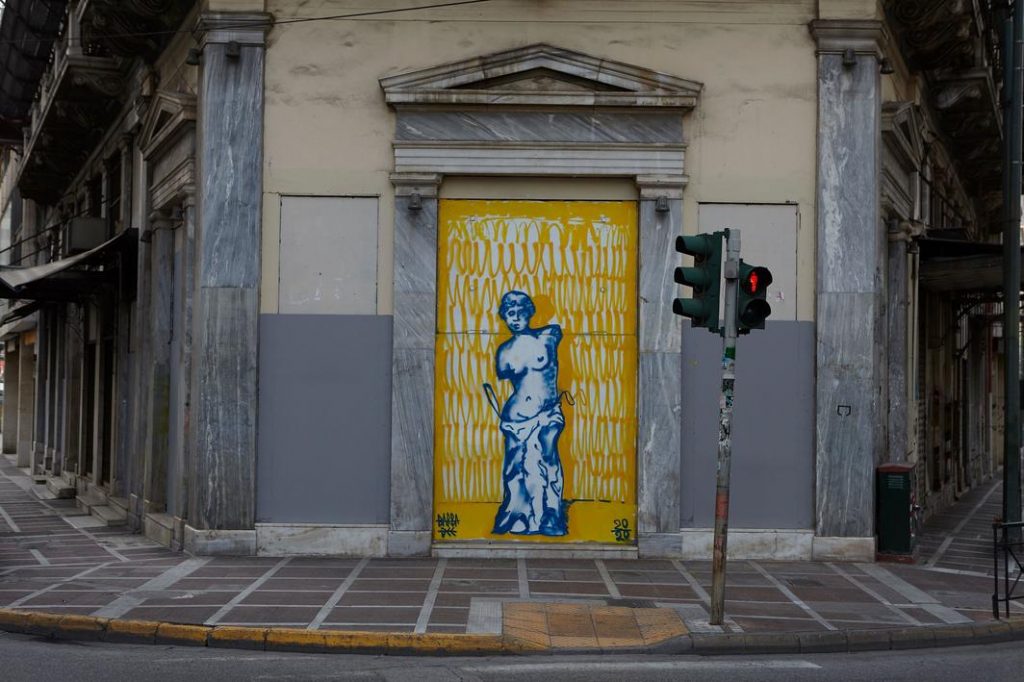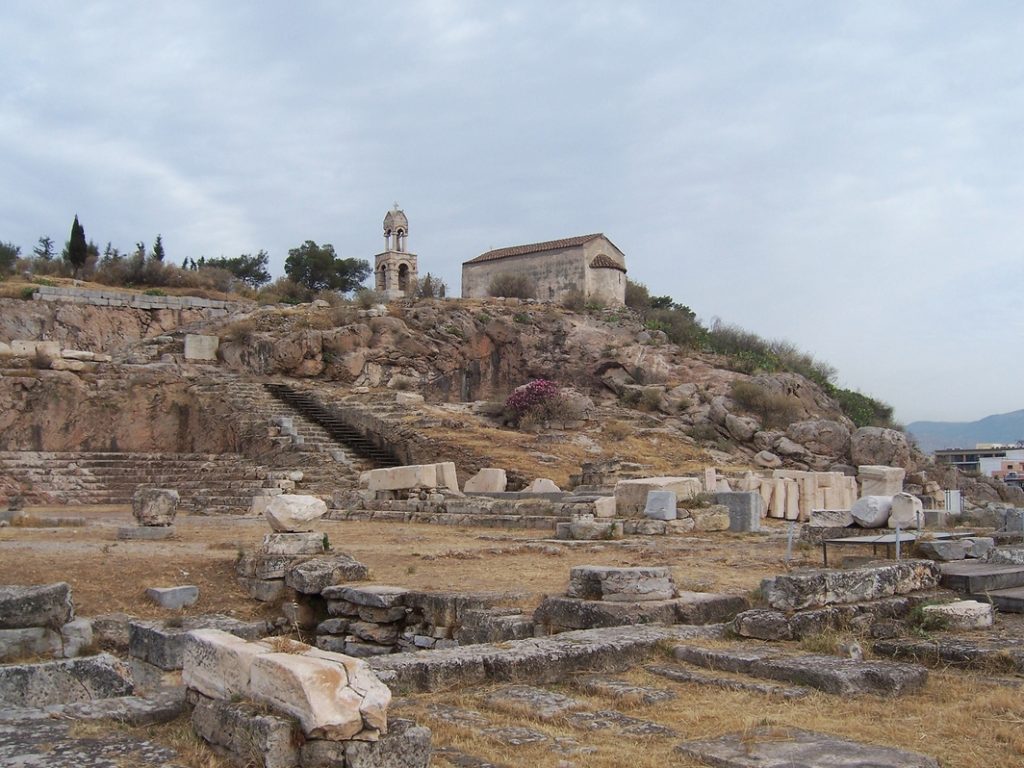Georgia Sagri
SLANT - Letter from Athens - Review
May 7, 2020–May 31, 2020Artforum
SLANT
LETTER FROM ATHENS
May 08, 2020 • Georgia Sagri on optic fever and social immunity
IN ATHENS, heavy silence oppresses while spring blossoms. On the roofs of apartment complexes, panels absorb energy and antennae extend like the branches of heavily populated transmission forests. All of them are built on top of histories on top of archaeologies, ancestries, and forgotten myths. How many times can you excavate a city whose name remains the same for hundreds of centuries? What do you expect to find? The scent of the city’s flowers—jasmine, bougainvillea, hyacinth—find some of us quarantined in the safety of our homes, others fighting the virus in hospitals. Nearly everyone is closer to poverty and homelessness, a condition all too familiar to the tens of thousands detained in squalid camps at the borders of “Fortress Europe.” In Greece, early lockdown measures have kept infection rates relatively low, and the country has been touted in the international media as a “coronavirus success.” But the current crisis—like the economic one Greece has been facing for more than a decade—has affirmed capitalism’s tenacity to mutate in order to colonize a wider field of control, investment, and transformation. We are all sick.
Like many others, my everyday life has been confined to a glowing rectangular frame. The moment I realize how long I’ve maintained the same posture, my back seizes up with pain, my shoulders get stiff. My eyes are burning. Optic fever1 takes hold. The cells that constitute the retina move so fast that heat throbs at the front of my brain. My breathing is slower, which means that my heart beats faster. I suffocate in a room full of absence but with enormous heat. As retinal sensation increases, the fever expands, and burns each and every focal point, every object around me. It is difficult to focus. I pick up a book, read one sentence, then jump to my phone, scroll, and like some random photos. I drink a glass of water. Do I feel better? Not really. Time flattens like the surface of my screen, a smooth and undifferentiated flow of desire and distance. If we are all sick, then a trust in καιρός—kairos, the unpredictable time—will help grow an emotional intellect that nourishes our social immunity. If free education and free healthcare for everyone exists at this small plateau in the crossings of East and West, North and South, it is because social immunity is cultivated through continuous struggles toward equality, cohabitation, and coexistence, even if there is no guarantee we will be able to experience the results.
For more than a decade, I have anchored my artistic practice through the development of a self-care routine based on breathing, movement, and voice that helped and still helps me to experiment and prepare for performance works. Since 2016, these techniques have evolved into IASI (recovery), an ongoing research practice and a body of treatments conducted in one-to-one sessions with a protocol of anonymity. In early 2020, IASI was conducted in London and, during the pandemic, has continued online in Athens. Participants have given various names to their immune responses to capitalism’s violence: panic attack, stress, anxiety, insomnia, autoimmune disease. I have felt their bodies trembling for fear of touch. I have seen their tears when breathing at their own pace makes them feel better and when they realize that the pain they feel is not in their head, that it actually exists. I have seen the relief on their faces when I tell them that they don’t need to do anything during the session: They can just be.
If we don’t recognize this αεργία (aergía, the Greek word that suggests self-driven inactivity) as the core human need and a fundamental condition of creativity, then it is unclear how we can support ourselves, care for others, or understand artistic production in general. The future of artists who are living, working, and paying taxes in Greece is severely imperiled by the pandemic. Artists who are self-employed haven’t been offered any economic support from the government, whose laws treat cultural production like a hobby. Recently a petition has been circulating to pressure the Greek Ministry of Culture and Sports to support artists affected by the prohibition on public gatherings and the shutdown of theaters, galleries, cinemas, and festivals. Yesterday, hundreds of artists and cultural workers demonstrated in Syntagma Square opposite the Greek Parliament to demand assistance. To support the arts means to consider the idiosyncrasy of art production that cannot be siloed by labor specialization, that cannot be custom-made or industrialized as a consumer product, or instrumentalized for the economic and political benefit of the ruling class. Some of us are artists because we refuse to want to become workers or bosses.
With my eyes closed, concentrating on my breath, I start seeing little dots and lines and the name Persephone comes to mind. I whisper her name, she is the κόρη2; the eye’s retina; daughter of Demeter; wife of Hades, god of the underworld. Persephone is the only one who can travel from the deep darkness of the afterlife to the brightness of the earth. The heat gives her motion. When the seasons change and the flowers bloom, she appears in her beauty to warm the earth with the joy of her and her mother, who together shake the earth awake.
Georgia Sagri is an artist and the initiator of the semi-private, semi-public space Ύλη[matter]HYLE. She is the professor of performance at the School of Fine Arts in Athens. Her research practice IASI (recovery) is supported by Mimosa House, London; TAVROS in Athens and De Appel, Amsterdam.
NOTES
1. I came up with the term optic fever to describe technocapitalism’s damage to visual perception and social engagement.
2. Κόρη, another name for Persephone, in Greek means the pupil of the eye, as well as daughter, young woman, and the Archaic freestanding sculpture type depicting a female figure.

